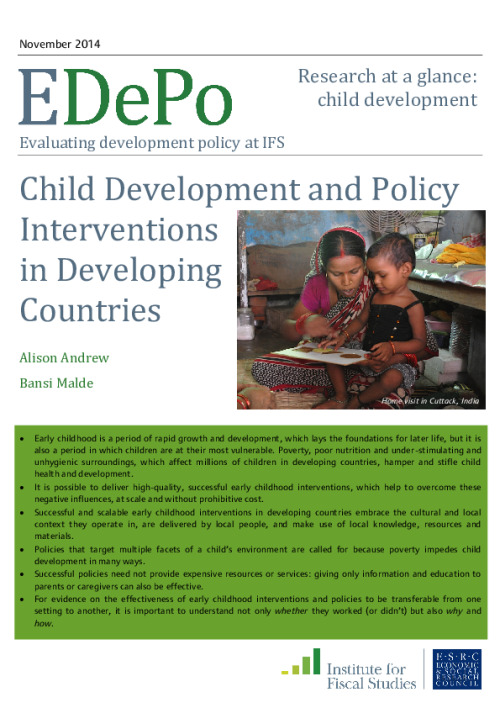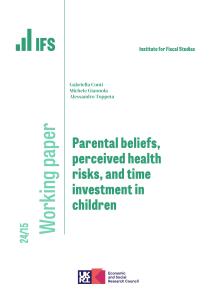- Early childhood is a period of rapid growth and development, which lays the foundations for later life, but it is also a period in which children are at their most vulnerable. Poverty, poor nutrition and under-stimulating and unhygienic surroundings, which affect millions of children in developing countries, hamper and stifle child health and development.
- It is possible to deliver high-quality, successful early childhood interventions, which help to overcome these negative influences, at scale and without prohibitive cost.
- Successful and scalable early childhood interventions in developing countries embrace the cultural and local context they operate in, are delivered by local people, and make use of local knowledge, resources and materials.
- Policies that target multiple facets of a child’s environment are called for because poverty impedes child development in many ways.
- Successful policies need not provide expensive resources or services: giving only information and education to parents or caregivers can also be effective.
- For evidence on the effectiveness of early childhood interventions and policies to be transferable from one setting to another, it is important to understand not only whether they worked (or didn’t) but also why and how.










